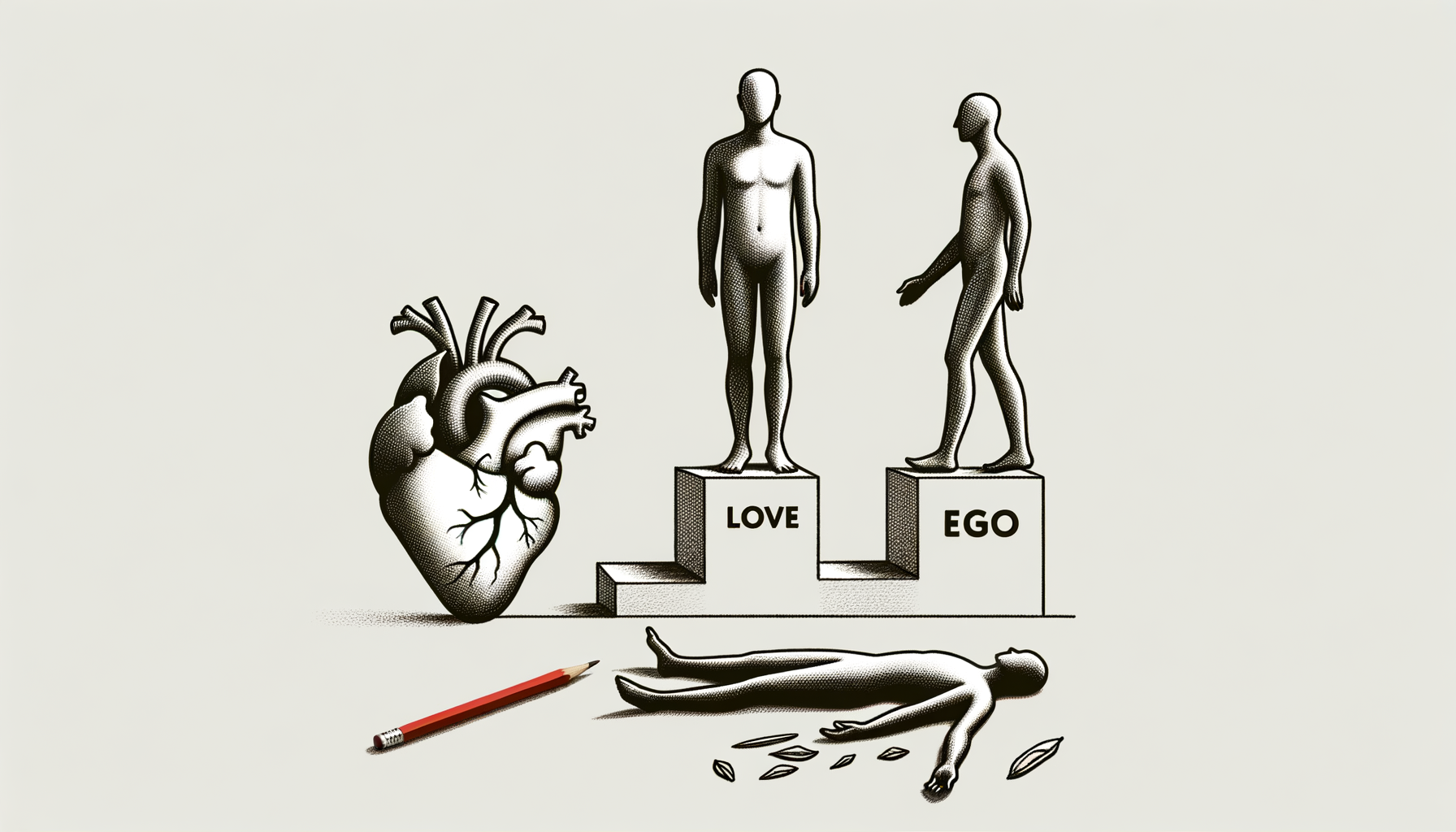I remember the exact moment I knew I was in trouble. I was standing on the edge of a craggy overlook in Rocky Mountain National Park, clutching a notepad and shaking it at the judgmental pines below. As far as failures go, mine wasn’t life-threatening. But it was spectacular in the way that only a poorly-executed romantic confession can be.
You see, I was 21, full of brash, idealistic ideas (as most Boulder kids are), and I had fallen in love with my best friend. I’d spent the summer hiking with her to alpine lakes, convincing myself that her shared love of backcountry granola bars and Fleetwood Mac was fate whispering in my ear. So, naturally, I decided to confess my feelings in the only way I knew how: A handwritten manifesto of love, scribbled in the margins of my nature journal.
Let’s pause here. If you’re wincing, yes, you are correct. It was a terrible idea. I thought I was Heathcliff on the Moors, but I was closer to Michael Scott quoting “Slumdog Millionaire” during a work PowerPoint.
Spoiler alert: She kindly told me she didn’t feel the same. And I, misunderstanding how adults handle rejection, very dramatically announced—again, from a literal mountain ridge—that I would “never love again.”
As you might suspect, I lived to love another day. But that particular blow to the ego? It changed me way more than I expected. Here's what I learned about failure, relationships, and that time-love-and-Earth-stopped-for-no-one rhythm of life.
The Grand Canyon of My Ego
What struck me most after my “big confession” debacle wasn’t the rejection itself. Sure, rejection aches like sharp sleet in a Colorado winter. But what really ate at me was how public my failure felt in my own head. It's as though the pikas and marmots surrounding us bore witness to my humiliation, which led me to briefly consider if I could turn hermiting into a feasible career.
This is the thing no one tells you about missteps in love: the shame of failure can sometimes hit harder than the feelings themselves. The “big, undeniable, fall-flat-on-your-face” kind of failure teaches you something in high definition: your ego is fragile, and growth is often its kryptonite.
Log Off Your Inner Critic
When you experience failure, especially in love, your mind has this nasty habit of live-tweeting your embarrassment to an audience of one: you. Suddenly, you’re reliving every awkward word you said, over and over, like Netflix has autoplayed into your own romantic misstep saga.
Here’s the truth: Failure happens. Somewhere, someone is out there clogging a stranger’s DMs with a playlist “that just screams what we could be.” You’re not alone in making bold, ill-advised choices in the name of love or passion. Let yourself fully experience that—cringe at your past self, but don’t get stuck cycling through your blooper reel. You're more than your worst moments, I promise.
For me? It took a literal journaling session (the irony isn’t lost on me) to quiet that inner voice. I sat down, wrote out everything I was “kicking myself for,” and then set fire to the draft in my parents’ backyard firepit. Dramatic? Absolutely. But it was cathartic.
Sometimes, Failure is the Ultimate Mirror
Looking back, the real failure wasn’t confessing my feelings. It was thinking that a grand, sweeping narrative would automatically make things right. I craved a moment where every loose thread of possibility between us would neatly knit into a shared scarf of happily-ever-after. But relationships—friendships, romance, whatever—don’t work that way. You can’t steamroll someone else’s agency or rush into connecting when the timing, emotions, or mutual understanding aren’t there.
In the weeks after our mountain spectacle, I came to terms with a difficult truth: My confession wasn’t brave. It was self-serving. I wanted her to know how I felt, but I’d mistaken romantic vulnerability for a one-sided catharsis. She wasn’t a villain for not reciprocating, and I wasn’t a poor tragic hero. I was a kid trying to figure out how love—real love—actually works.
Rocky Paths Still Get You Somewhere
Here’s the hopeful part about failing miserably: It shifts your compass. You get better at recognizing your limits, noticing when your emotions are genuine and when they’re tangled up in the idea of love. Over time, I’ve learned to embrace smaller, quieter moments of connection, rather than trying to orchestrate Beethoven-level crescendos.
Relationships—platonic, romantic, or somewhere in between—are messy. They aren’t glaciers you can study from a safe distance; they’re rushing rivers that might soak you to your socks now and then. My time drenched in failure taught me that while love might not look the way you expect, it can still be beautifully ordinary once you stop forcing it to be extraordinary.
Takeaways (So You Don’t Have to Scale a Mountain for Wisdom)
As I’ve reflected on that awkward mountain-top confession, here are my big lessons for the road (or trail):
- Own your feelings, but respect boundaries. Vulnerability is brave, but trying to script someone else’s response isn’t. Share genuinely, but be prepared for all outcomes.
- It’s not personal (even when it feels personal). Your self-worth isn’t tied to how someone else feels about you. Their response says more about their heart-work than your value.
- Failure means you’re living fully. The more you care, the more you’ll risk—but those risks make you human. You’ll bounce back.
- Learn to laugh about it. One day, that gut-wrenching sting will be the story you tell around campfires, just like I’m telling mine now.
The Final Ascent
There’s something liberating about stumbling spectacularly in love—or in any part of life, for that matter. Each failure plants seeds for something bigger: resilience, self-awareness, and dare I say it, humility. Walking back down that mountain, I didn’t know it yet, but I was beginning to grow into someone who could face rejection without letting it define my worth.
I’ve since forgiven my 21-year-old self for the impromptu soliloquy on the ridge. Have I still botched a few more romantic gestures in the years since? Obviously—though none quite so Shakespeare-meets-outdoorsy. But failing big, early, and often has taught me that we’re all capable of blotting out our ego and sketching something warmer, messier, and so much more real in its place.
At the end of the day, love—like Rocky Mountain trails—is about the journey as much as the summit. Be bold enough to hike the awkward paths. You’ll thank yourself when you make it to the next clearing.




















